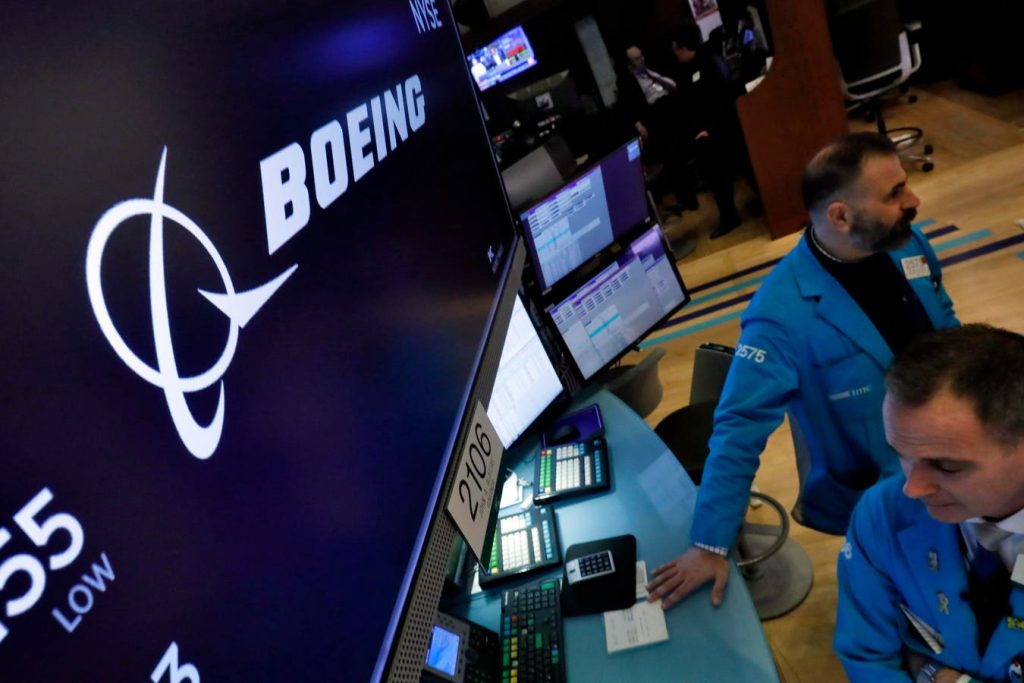Boeing’s Financial Turbulence Deepens: A Record of Historic Losses
The Boeing Company, once a symbol of American industrial prowess, finds itself mired in a financial quagmire of unprecedented proportions. The aerospace giant recently announced a staggering $3.8 billion net loss for the fourth quarter of 2024, culminating in an annual loss of $11.8 billion, the second largest in the company’s history. This dismal performance extends Boeing’s losing streak to a painful six years, accumulating a total loss of $35.7 billion since 2019. This period of financial turmoil began with the grounding of the 737 Max following two tragic crashes, which exposed deep-seated issues within the company’s safety and production processes.
Several factors have contributed to Boeing’s ongoing financial woes. The recent seven-week strike by machinists disrupted production of the crucial 737 Max, the company’s best-selling aircraft. Persistent delays and cost overruns in key defense programs have further exacerbated the financial strain. Furthermore, the company continues to grapple with production problems related to the 737 Max and 787 Dreamliner, hindering its ability to deliver aircraft and generate revenue. These challenges have created a perfect storm of negative financial pressures, pushing Boeing deeper into the red.
Boeing’s 2024 losses solidify its position as the biggest loser in the S&P 500 index since 2019. While other companies like Uber and Carnival, which were also experiencing significant losses, have shown signs of recovery, Boeing continues its downward spiral. Uber is expected to report a profit for 2024, and Carnival has significantly reduced its losses, posting a net income of $1.9 billion for the year. This stark contrast highlights the severity of Boeing’s predicament.
While not the single largest loser in the S&P 500 over the past quarter-century (adjusting for inflation), Boeing’s financial woes are historically significant. American International Group (AIG) holds the unfortunate record, having lost a staggering $162 billion (inflation-adjusted) during the 2008-2009 financial crisis. General Motors follows with $130 billion in losses (inflation-adjusted) between 2005 and 2008 before its bankruptcy filing. Although Boeing’s losses are smaller in comparison, they represent a significant downturn for a company of its stature and historical significance.
Within a specific subset of S&P 500 companies experiencing prolonged losing streaks, Boeing stands out as the biggest loser. Among the 27 companies with at least six consecutive years of losses since 1999, Boeing has incurred the largest losses, exceeding the inflation-adjusted $28.8 billion lost by the former parent company of TXU, a Texas electricity supplier, between 2010 and 2015. However, in terms of the duration of losing streaks, Boeing’s six-year run is dwarfed by other companies like DEX, which endured 18 consecutive years of losses.
Despite the bleak financial picture, institutional investors have maintained confidence in Boeing’s long-term prospects, primarily due to its substantial order book of over 5,500 aircraft. This backlog represents potential future revenue, contingent upon the company’s ability to overcome its production challenges and deliver aircraft efficiently. This investor confidence was evident in late 2024 when Boeing raised $24 billion through a combination of stock sales and convertible debt offerings. This influx of capital provides the company with some breathing room to address its operational issues and invest in future growth.
However, a quick turnaround for Boeing appears unlikely. The company’s CFO, Brian West, has projected negative cash flow for the full year 2025, suggesting that the path to profitability remains arduous. The company faces significant hurdles in streamlining its production processes, addressing quality control issues, and regaining the trust of customers and regulators. While the substantial order book offers a glimmer of hope, the road to recovery will be long and challenging, requiring significant operational improvements and a renewed focus on safety and efficiency. The future of Boeing hinges on the successful execution of its turnaround strategy and the ability of its new CEO, Kelly Ortberg, to navigate the company through this turbulent period.










